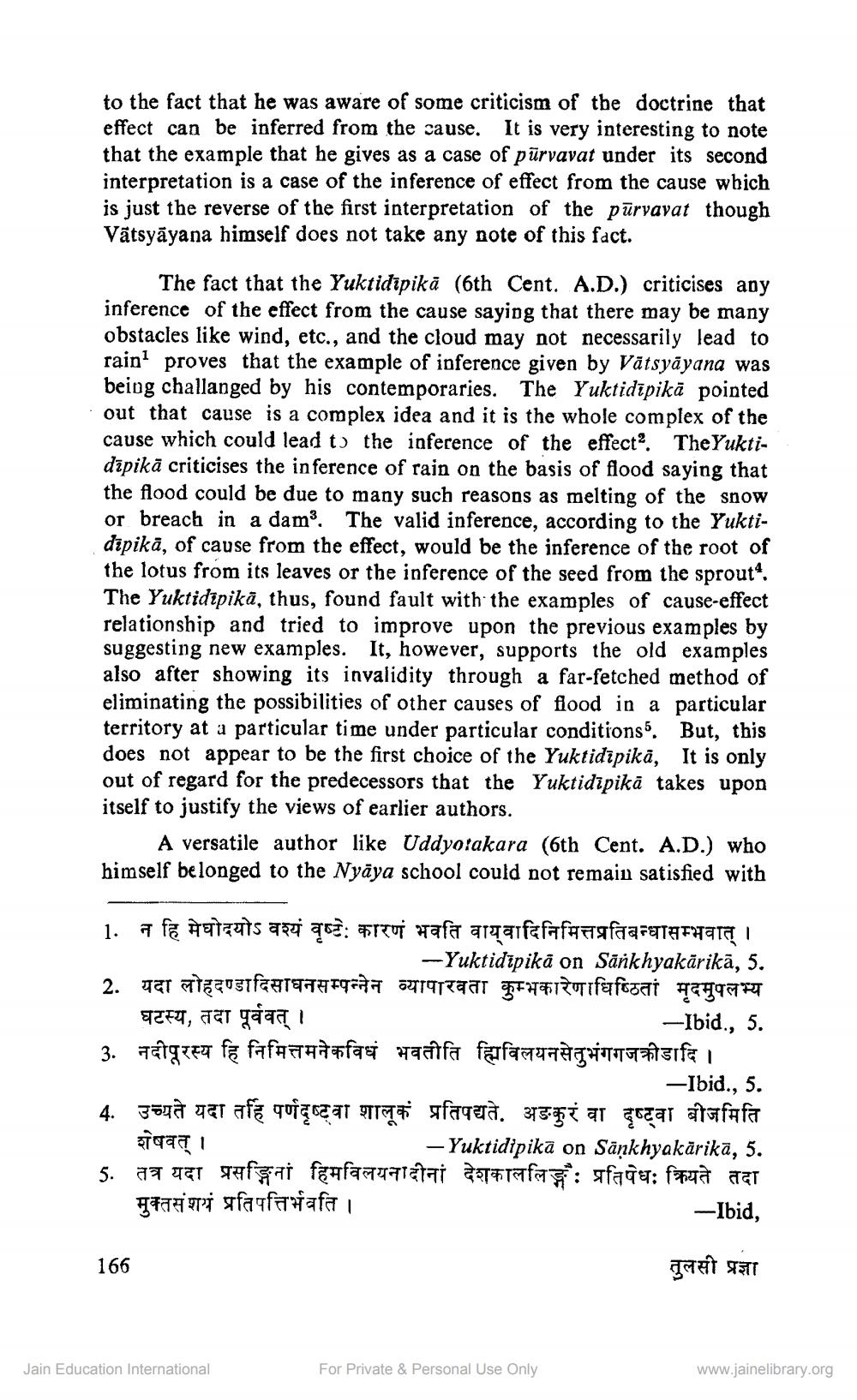________________
to the fact that he was aware of some criticism of the doctrine that effect can be inferred from the cause. It is very interesting to note that the example that he gives as a case of pūrvavat under its second interpretation is a case of the inference of effect from the cause wbich is just the reverse of the first interpretation of the pūrvavat though Vātsyāyana himself does not take any note of this fact.
The fact that the Yuktidipikā (6th Cent. A.D.) criticises any inference of the effect from the cause saying that there may be many obstacles like wind, etc., and the cloud may not necessarily lead to raini proves that the example of inference given by Vätsyāyar being challanged by his contemporaries. The Yuktidīpikā pointed out that cause is a complex idea and it is the whole complex of the cause which could lead t) the inference of the effect. TheYuktidipikā criticises the inference of rain on the basis of flood saying that the flood could be due to many such reasons as melting of the snow or breach in a dam. The valid inference, according to the Yuktidipikā, of cause from the effect, would be the inference of the root of the lotus from its leaves or the inference of the seed from the sprout". The Yuktidipikā, thus, found fault with the examples of cause-effect relationship and tried to improve upon the previous examples by suggesting new examples. It, however, supports the old examples also after showing its invalidity through a far-fetched method of eliminating the possibilities of other causes of flood in a particular territory at a particular time under particular conditions. But, this does not appear to be the first choice of the Yuktidipikā, It is only out of regard for the predecessors that the Yuktidipikā takes upon itself to justify the views of earlier authors.
A versatile author like Uddyolakara (6th Cent. A.D.) who himself belonged to the Nyāya school could not remain satisfied with
1. न हि मेघोदयोऽ वश्यं वृष्टेः कारणं भवति वायवादिनिमित्तप्रतिबन्धासम्भवात् ।
-Yuktidipikā on Sānkhyakārikā, 5. 2. यदा लोहदण्डादिसाधनसम्पन्नेन व्यापारवता कुम्भकारेणाधिष्ठितां मृदमुपलभ्य EEFT, gan gaaa !
-Ibid., 5. 3. नदीपूरस्य हि निमित्तमनेकविधं भवतीति झिविलयनसेतुभंगगजक्रीडादि ।।
-Ibid., 5. 4. उच्यते यदा तर्हि पर्णदृष्ट्वा शालूकं प्रतिपद्यते. अङकुरं वा दृष्ट्वा बीजमिति 19971
– Yuktidipikā on Sāņkhyakärikā, 5. 5. तत्र यदा प्रसङ्गिनां हिमविलयनादीनां देशकाललिङ्गः प्रतिषेधः क्रियते तदा मुक्तसंशयं प्रतिपत्तिर्भवति ।
-Ibid,
166
तुलसी प्रज्ञा
Jain Education International
For Private & Personal Use Only
www.jainelibrary.org




